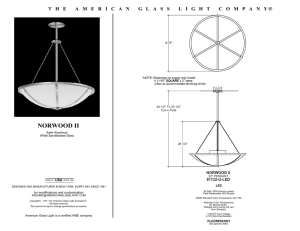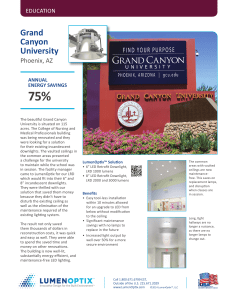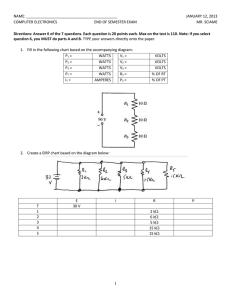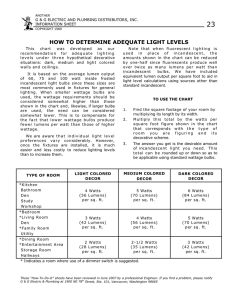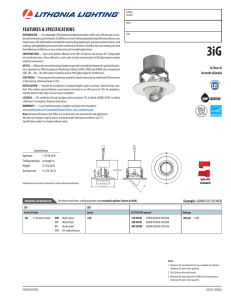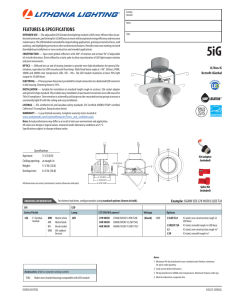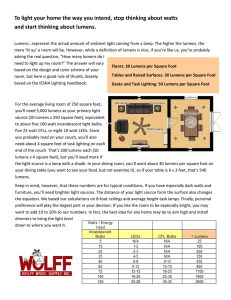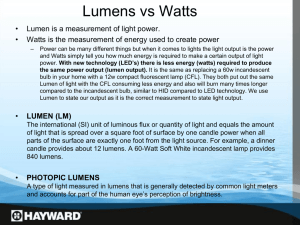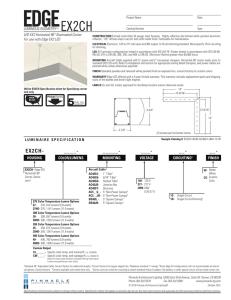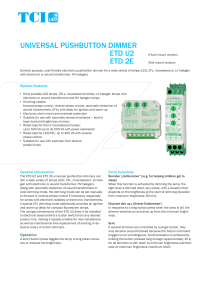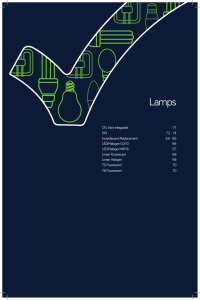Dimming incandescent or halogen bulbs by 25% saves 20% electricity
advertisement
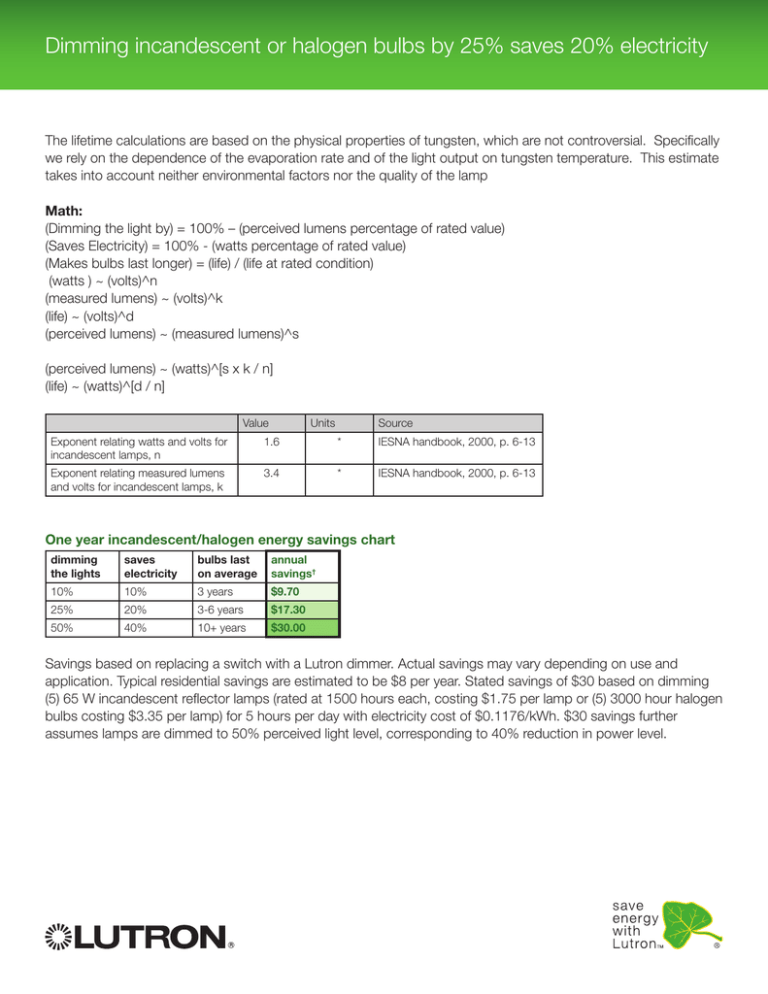
Dimming incandescent or halogen bulbs by 25% saves 20% electricity The lifetime calculations are based on the physical properties of tungsten, which are not controversial. Specifically we rely on the dependence of the evaporation rate and of the light output on tungsten temperature. This estimate takes into account neither environmental factors nor the quality of the lamp Math: (Dimming the light by) = 100% – (perceived lumens percentage of rated value) (Saves Electricity) = 100% - (watts percentage of rated value) (Makes bulbs last longer) = (life) / (life at rated condition) (watts ) ~ (volts)^n (measured lumens) ~ (volts)^k (life) ~ (volts)^d (perceived lumens) ~ (measured lumens)^s (perceived lumens) ~ (watts)^[s x k / n] (life) ~ (watts)^[d / n] Value Units Source Exponent relating watts and volts for incandescent lamps, n 1.6 * IESNA handbook, 2000, p. 6-13 Exponent relating measured lumens and volts for incandescent lamps, k 3.4 * IESNA handbook, 2000, p. 6-13 One year incandescent/halogen energy savings chart dimming the lights saves electricity bulbs last on average annual savings† 10% 10% 3 years $9.70 25% 20% 3-6 years $17.30 50% 40% 10+ years $30.00 Savings based on replacing a switch with a Lutron dimmer. Actual savings may vary depending on use and application. Typical residential savings are estimated to be $8 per year. Stated savings of $30 based on dimming (5) 65 W incandescent reflector lamps (rated at 1500 hours each, costing $1.75 per lamp or (5) 3000 hour halogen bulbs costing $3.35 per lamp) for 5 hours per day with electricity cost of $0.1176/kWh. $30 savings further assumes lamps are dimmed to 50% perceived light level, corresponding to 40% reduction in power level.
